big bang
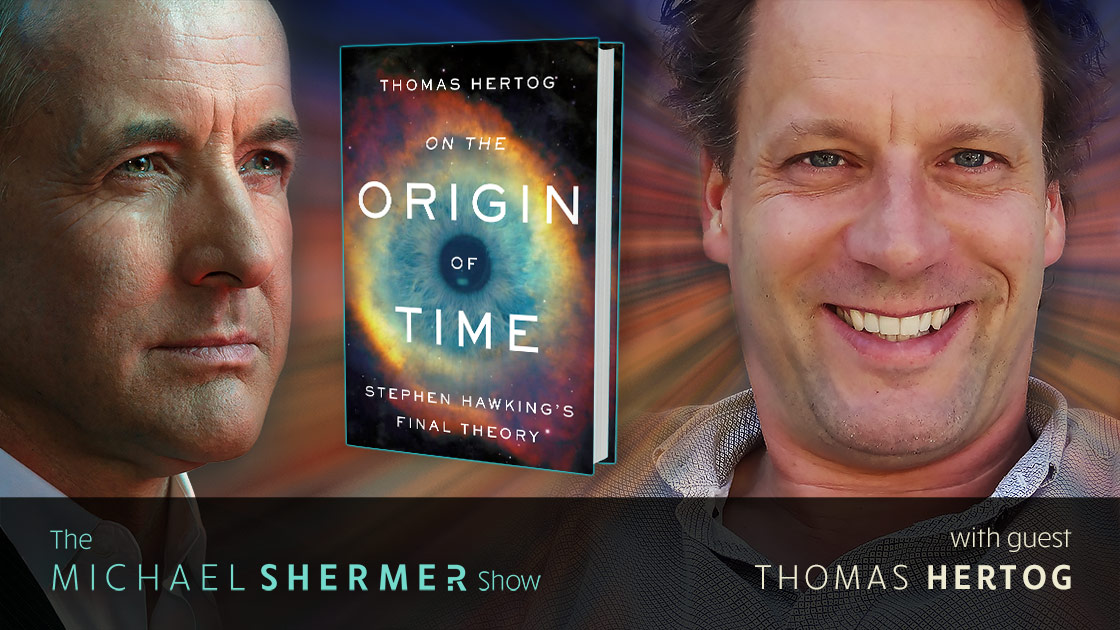
Shermer and Hertog discuss: what it was like working with Stephen Hawking • Darwinian model of cosmology • time • What banged the Big Bang? • cosmic inflation and multiple universes • how to reconcile Einstein’s relativity theory of gravity and quantum theory • Hawking’s no-boundary theory • why the universe appears designed • Feynman’s sum over histories approach to quantum physics • Is there purpose in the cosmos? • Why is there something rather than nothing?

Entropy keeps the arrow of time moving; today is less ordered than yesterday, and this is certain. If we extrapolate this concept backwards, through our scientific narrative to the origins of the universe, then we must postdict a universe that was once ordered only through its lack of movement, which means it was frozen. But even then, as Galileo once said of the Earth, eppur si muove, but it does move. And if it moves, it creates heat, and understanding…
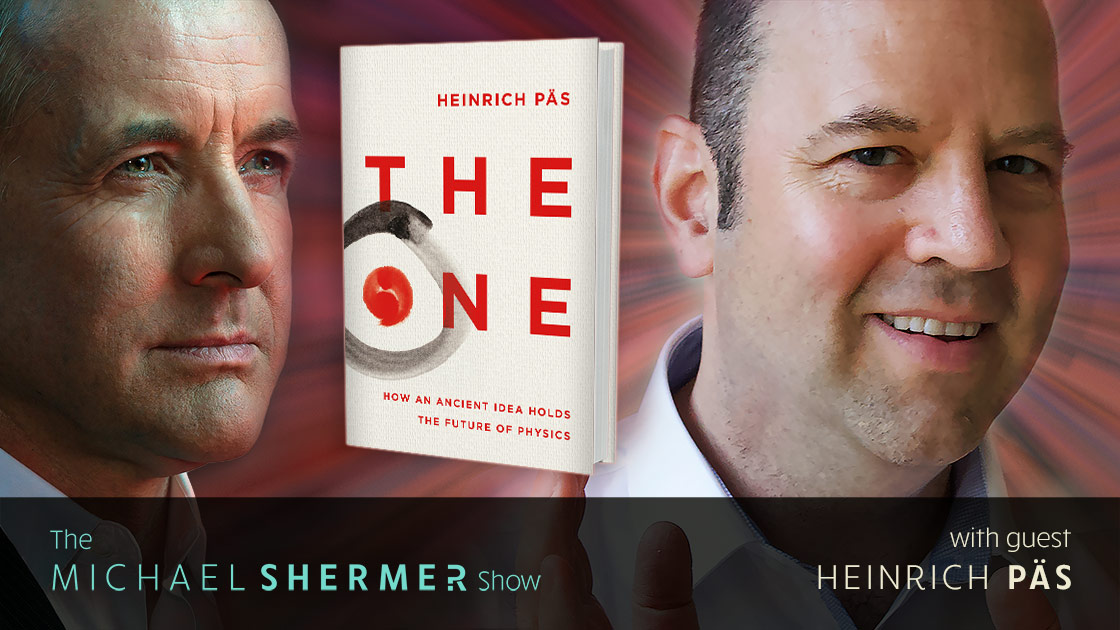
Shermer and Päs discuss: monism vs. dualism • What is time? • What is a field? • Is math all there is? Is math universal? • the double-slit experiment • superposition • metaphors in science • limitations of models and theories of reality • limitations of analogies between western physics and eastern mysticism • What banged the Big Bang? • Are we living in a matrix? • the Second Laws of Thermodynamics and directionality in nature • Model Dependent Realism • string theory, the multiverse, consciousness, the origin of the universe, and why…
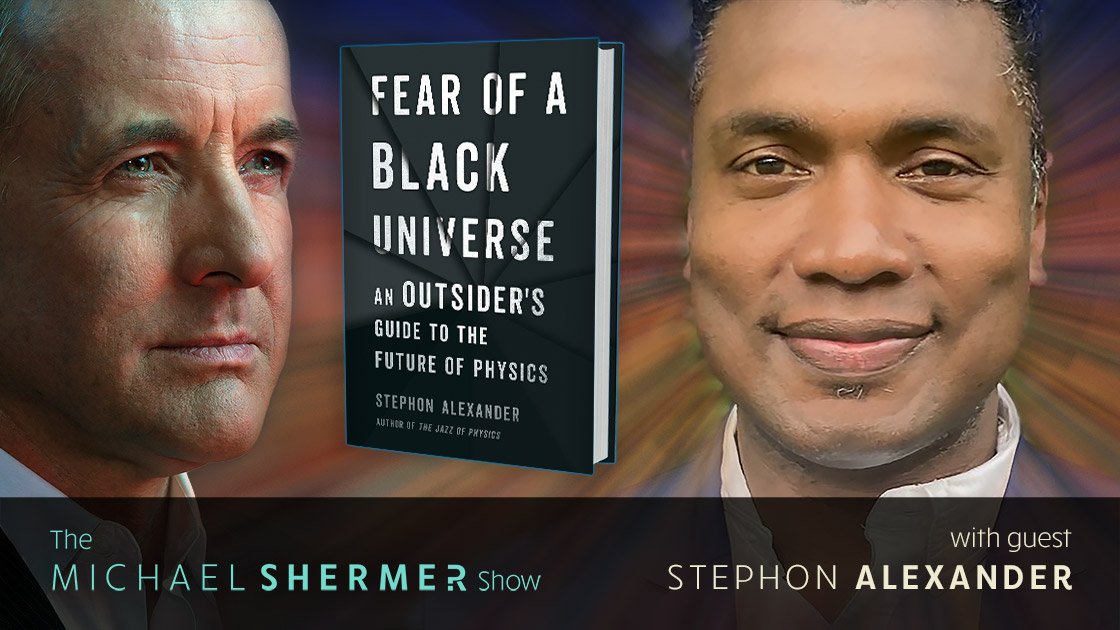
Shermer and Alexander discuss: his journey from Trinidad to the Bronx to professor of physics • what it’s like being Black in a mostly White and Asian field of science • systemic racism and misogyny • how to be an outsider inside a science • how to tell the difference between revolutionary and worthless new ideas • how do laypeople understand whether something is good science or not? • the double-slit experiment • superposition • connections between quantum physics and…
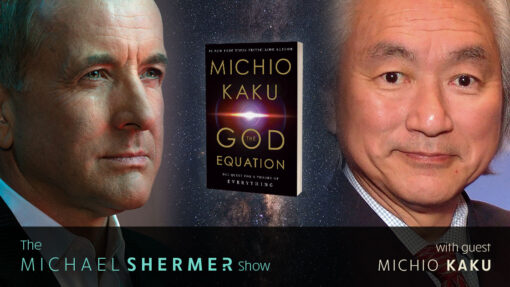
Synthesizing relativity and quantum theory would be the crowning achievement of science, a profound merging of all the forces of nature into one beautiful, magnificent equation to unlock the deepest mysteries in science. In this episode, Michael Shermer speaks with professor of theoretical physics Michio Kaku about: the Big Bang, black holes, worm holes, the multiverse, time travel, dark energy and dark matter, gravity, string theory, ETIs, meaning, and God.
Michael Shermer speaks with professor of theoretical physics Michio Kaku about The Quest for a Theory of Everything. PLUS: From now through April 10, 2021 (5 days only) all print and digital back issues Skeptic magazine are on sale for only $1.99 each!
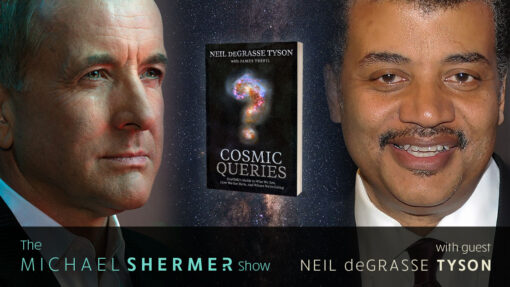
In episode 164 of The Michael Shermer Show, Dr. Shermer speaks with Neil deGrasse Tyson about his new book Cosmic Queries: StarTalk’s Guide to Who We Are, How We Got Here, and Where We’re Going. Enjoy this thought-provoking conversation on life, the universe, and everything, as Neil deGrasse Tyson tackles the world’s most important philosophical questions about the universe with wit, wisdom, and cutting-edge science.
In episode 164 of The Michael Shermer Show, Dr. Shermer speaks with Neil deGrasse Tyson about his new book Cosmic Queries: StarTalk’s Guide to Who We Are, How We Got Here, and Where We’re Going. Enjoy this thought-provoking conversation on life, the universe, and everything, as Neil deGrasse Tyson tackles the world’s most important philosophical questions about the universe with wit, wisdom, and cutting-edge science.
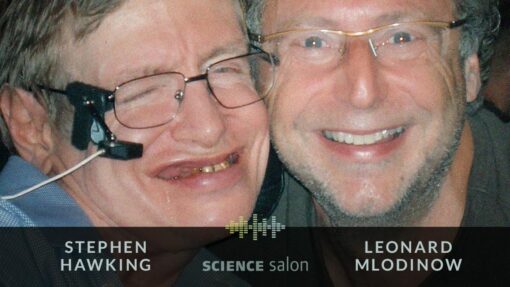
In Science Salon podcast # 132, Michael Shermer speaks with Leonard Mlodinow about his new book in which he recounts, in a unique and deeply personal portrayal, nearly two decades as Stephen Hawking’s collaborator and friend.
In Science Salon # 112 Michael Shermer speaks with Ann Druyan about her book Cosmos: Possible Worlds, exploring how science and civilization grew up together. This book is the sequel to Carl Sagan‘s beloved classic and the companion to the hit television series hosted by Neil deGrasse Tyson.
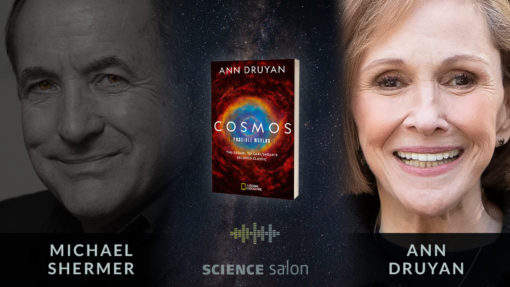
In this sequel to Carl Sagan’s beloved classic and the companion to the hit television series hosted by Neil deGrasse Tyson, the primary author of all the scripts for both this season and the previous season of Cosmos, Ann Druyan explores how science and civilization grew up together. From the emergence of life at deep-sea vents to solar-powered starships sailing through the galaxy, from the Big Bang to the intricacies of intelligence in many life forms…
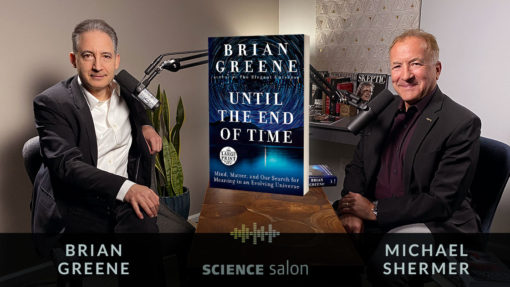
Until the End of Time is Brian Greene’s breathtaking new exploration of the cosmos and our quest to find meaning in the face of this vast expanse. Greene takes us on a journey from the big bang to the end of time, exploring how lasting structures formed, how life and mind emerged, and how we grapple with our existence through narrative, myth, religion, creative expression, science, the quest for truth, and a deep longing for the eternal.
In Science Salon # 108 Michael Shermer speaks with Brian Greene about his book Until the End of Time: Mind, Matter, and Our Search for Meaning in an Evolving Universe. PLUS, during the Coronavirus outbreak, while many schools are closed, Shermer shares one of his Chapman University lectures, taught remotely, free for everyone to view.
In this issue: The latest issue of Skeptic magazine (24.2) launches today in print and digital editions; PLUS Science Salon # 70 with cosmologist and inventor of the BICEP (Background Imaging of Cosmic Extragalactic Polarization) experiment Dr. Brian Keating.
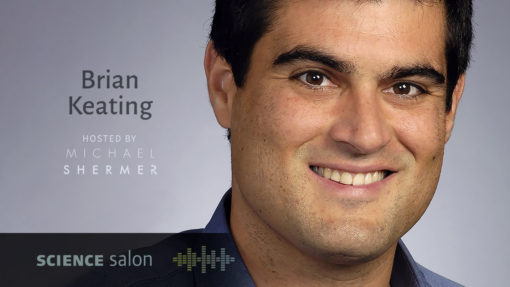
In Science Salon # 70, Dr. Michael Shermer speaks with cosmologist and inventor of the BICEP (Background Imaging of Cosmic Extragalactic Polarization) experiment Dr. Brian Keating.
In this week’s eSkeptic, Richard Morrock reviews New Atheist Victor Stenger’s new book God and the Folly of Faith: The Incompatibility of Science and Religion (2012, Prometheus Books, ISBN 978-1616145996).
Scientists are edging closer to providing logical and even potentially empirically testable hypotheses to account for the universe. In this week’s eSkeptic, Michael Shermer discusses 12 possible answers to the question of why there is something rather than nothing.
WHEN AND HOW DID THE UNIVERSE BEGIN? Why are we here? Why is there something rather than nothing? What is the nature of reality? Why are the laws of nature so finely tuned as to allow for the existence of beings like ourselves? And, finally, is the apparent “grand design” of our universe evidence of a benevolent creator who set things in motion — or does science offer another explanation? Don’t miss this lecture by Leonard Mlodinow.
In this week’s eSkeptic, Lloyd B. Lueptow asserts that the Large Hadron Collider experiments should be delayed or stopped while the risk/cost-benefit equation is sorted out in debates the public can comprehend. The only acceptable risk is zero when the cost is the possible destruction of planet Earth. This piece is followed with a rebuttal by Dr. Lawrence Krauss.
A celebrated maverick in the world of science, Bark Kosko introduced the revolutionary concept of fuzzy logic. In his latest book, upon which this lecture is based, he provides the first scientific history of noise…
NEXT →


















